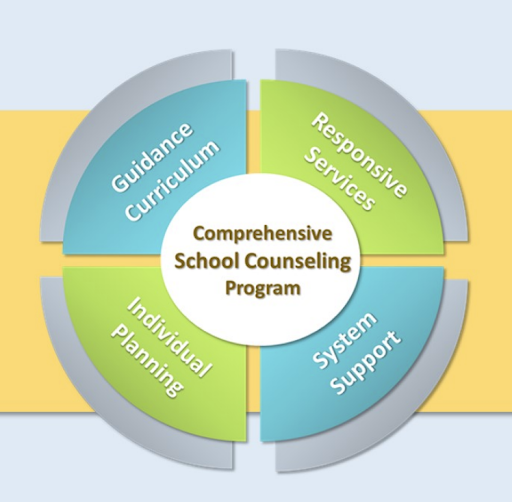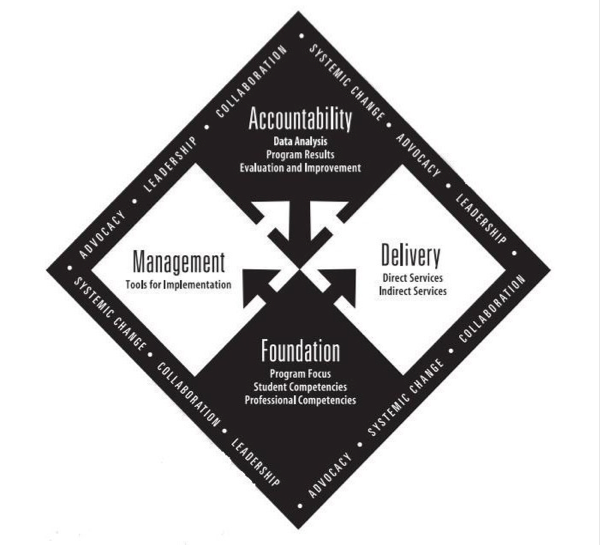Texas Model For Comprehensive School Counseling Programs
The Texas Model for Comprehensive School Counseling Programs indicates that the needs of all students and the school system itself are met through four components: Guidance Curriculum, Individual Planning, Responsive Services, and System Support. This framework allows counselors to deliver consistent, high-quality services that meet the diverse needs of all students across the district.

Guidance Curriculum
Teach students to develop transferable skills for success
Typically taught in the classroom through planned lessons
Individual Planning
Assist students in making individual goals for their academic and career futures
Provide parents and guardians with information on postsecondary education
Responsive Services
Intervene on behalf of students whose circumstances put their educational, career, personal, and social development at risk
May be preventative, remedial, or crisis-oriented
System Support
Identify and coordinate resources and activities that indirectly benefit students
Assess data to support an effective school counseling program
American School Counselor Association (ASCA) National Model
The ASCA National Model guides school counselors in the development of school counseling programs that:
are based on data-informed decision making
are delivered to all students systematically
include a developmentally appropriate curriculum focused on the mindsets and behaviors all students need for postsecondary readiness and success
close achievement and opportunity gaps
result in improved student achievement

Component | Summary |
|---|---|
Define | Establishes the program's focus and purpose through a set of professional and student standards. School counselors identify their beliefs, develop a vision and mission statement aligned with the school's, and incorporate the ASCA Mindsets & Behaviors for student success in academic, career, and social/emotional domains. This phase answers the question, "What do students need? |
Manage | Focuses on the organizational structure and planning tools needed for effective and efficient program implementation. This involves using data, such as a use-of-time assessment and annual results reports, to guide decisions. Key tools include annual agreements with administrators, advisory councils, and action plans for curriculum, small groups, and closing achievement gaps |
Deliver | The direct and indirect services provided to students, parents, and staff. Direct services involve in-person interactions like the school counseling core curriculum (classroom lessons), individual student planning, and responsive services (individual or small-group counseling, crisis response). Indirect services, provided on behalf of students, include consultation, collaboration, and referrals |
Assess | Demonstrates the program's effectiveness in measurable terms through data analysis. School counselors collect and analyze data to show how students are different as a result of the program's interventions, focusing on impact on student achievement, attendance, and behavior. This informs improvements for future program design and delivery |
